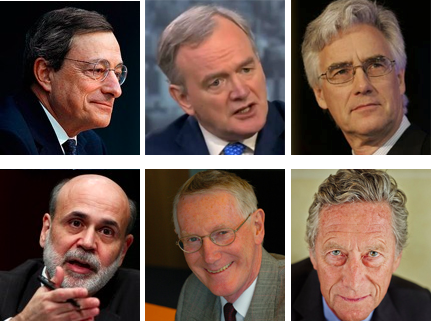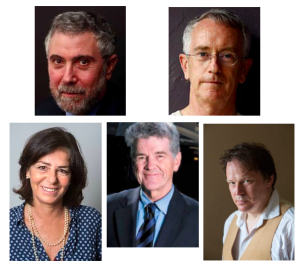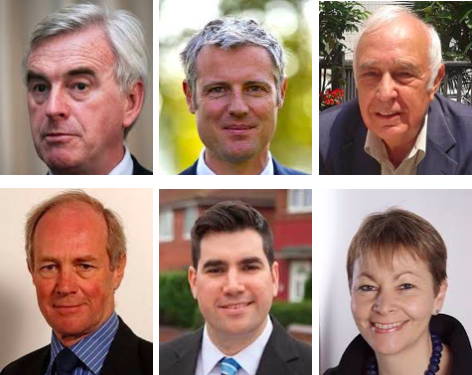Prominent Economists who advocate Public Money Creation – Summary

Earlier in the year, Positive Money showed that there is a strong intellectual history behind the idea of Public Money Creation. We argued that Public Money Creation needn’t be right or left of the political spectrum – it is simply the way forwards. Indeed we showed that some of the most famous economists of the 20th century – including John Maynard Keynes and Milton Friedman – proposed using the central bank’s money creating powers to stimulate spending in the real economy.
More recently, based on various case-studies, we highlighted why these economists understood that Public Money Creation does not need to be hyperinflationary. Accordingly, we are trying to keep a record of the various people who share Keynes’s and Friedman’s understanding of Public Money Creation. Most recently, Janet Yellen, Chairwoman of the US Federal Reserve announced that the FED would ‘legitimately consider‘ using a form of Public Money Creation in exigent circumstances.
Did you know that there are a number of other economists in influential circles that also endorse Public Money Creation?
Prominent Policy Makers thinking about different types of QE

“’Helicopter money’ – by which we mean overt monetary financing of increased fiscal deficits – may in some circumstances be the only certain way to stimulate nominal demand, and may carry with it less risk to future financial stability than the unconventional monetary policies currently being deployed.”
Lord Adair Turner- Member of UK Financial Policy Committee, former Chairman of Financial Services Authority
Prominent Academics who advocate a different type of QE

“I would have used the capacity of central banks to create money by making a direct injection into individuals bank accounts on a pro rata basis, complicated to work out how, but basically injecting money into peoples bank accounts, on the condition that those people who are in debt pay there debts down so that way you have private debt cancellation coming out of it, not therefore not only benefiting debtors but also benefitting savers who would also get it, and rather than paying down their debts down they would get an increase in cash levels…Its a very indirect and expensive way of getting very little bang for your buck…”
Professor Steve Keen, Kingston University, UK
Prominent Politicians who advocate a different type of QE

“If the majority view is that quantitative easing is necessary, we need to ask this question: why not inject those funds into the real economy—into housing and energy projects of the kind that Opposition Members have spoken about—rather than using the mechanism in a way that clearly benefits only very few people within the world of financial and banking wizardry that we are discussing?”
Zac Goldsmith, Conservative MP
Prominent Economists working in the financial sector that advocate a different type of QE

“Rather than trying to spur private-sector spending through asset purchases or interest-rate changes, central banks, such as the Fed, should hand consumers cash directly. In practice, this policy could take the form of giving central banks the ability to hand their countries’ tax-paying households a certain amount of money. The government could distribute cash equally to all households or, even better, aim for the bottom 80 percent of households in terms of income. Targeting those who earn the least would have two primary benefits. For one thing, lower-income households are more prone to consume, so they would provide a greater boost to spending. For another, the policy would offset rising income inequality.”
Eric Lonergan, Fund Manager and Author of ‘Money: The Art of Living’
Prominent Journalists who advocate a different type of QE

“The Case for Helicopter Money…What makes this policy so powerful is the combination of fiscal spending with monetary expansion: Keynesians can enjoy the former; monetarists the latter. Provided the decision on the scale of financing rests in the hands of the central bank and it, in turn, looks at the impact of the policy on the economy, this need not even generate high inflation, let alone hyperinflation.”
Martin Wolf, Chief Economics Commentator at the Financial Times
Prominent Activists and Special Advisors who advocate a different type of QE

“Would direct reflation of the economy through a modern Debt Jubilee, “helicopter money” and/or a money-financed investment programme have worked better? I am one of many who think it would. We need investment, yes, but while interest rates remain low we can have this through conventional bond financing at little cost. To my mind the attention of the new Labour party leadership should be elsewhere.”
Frances Coppola